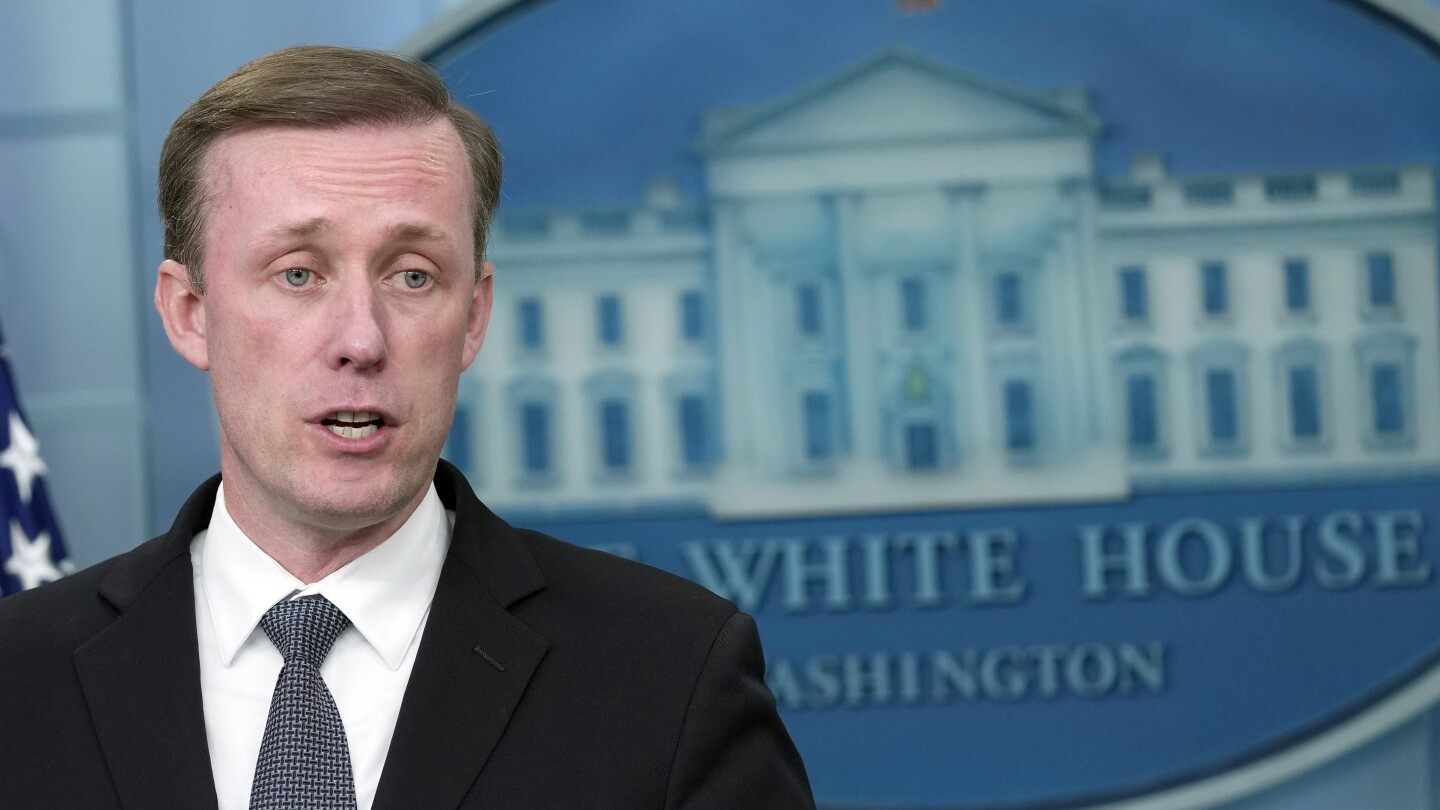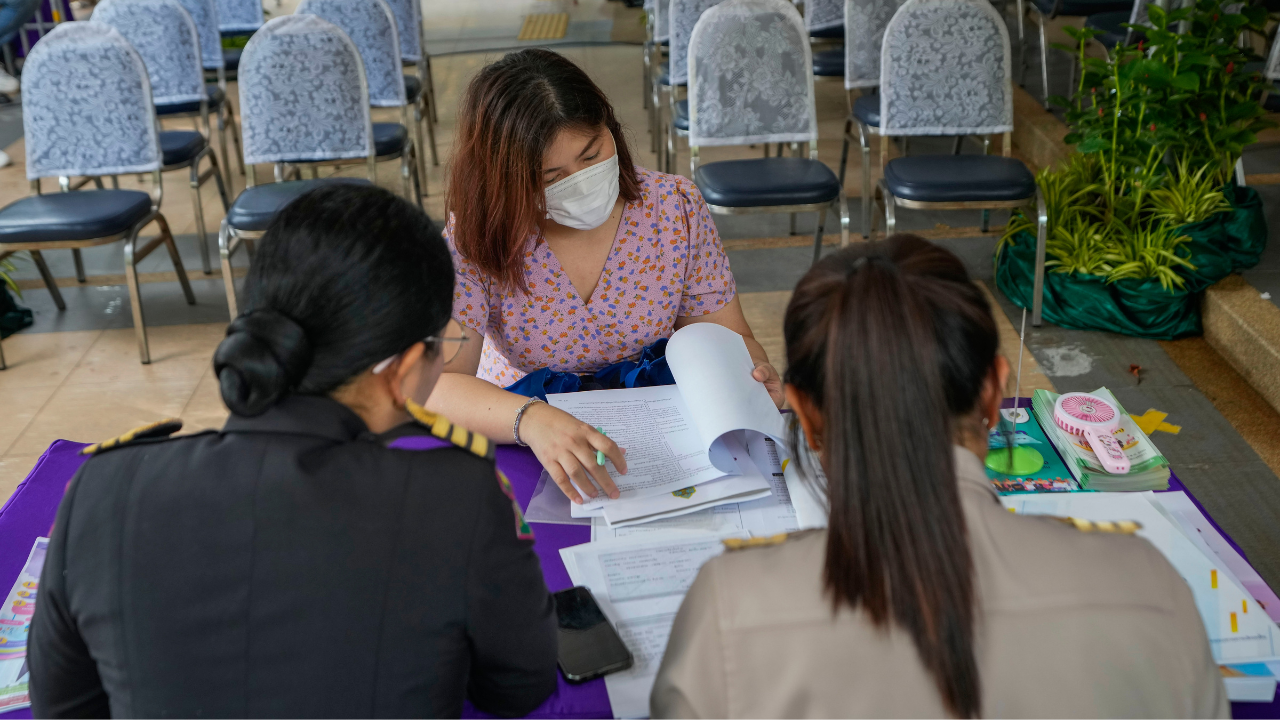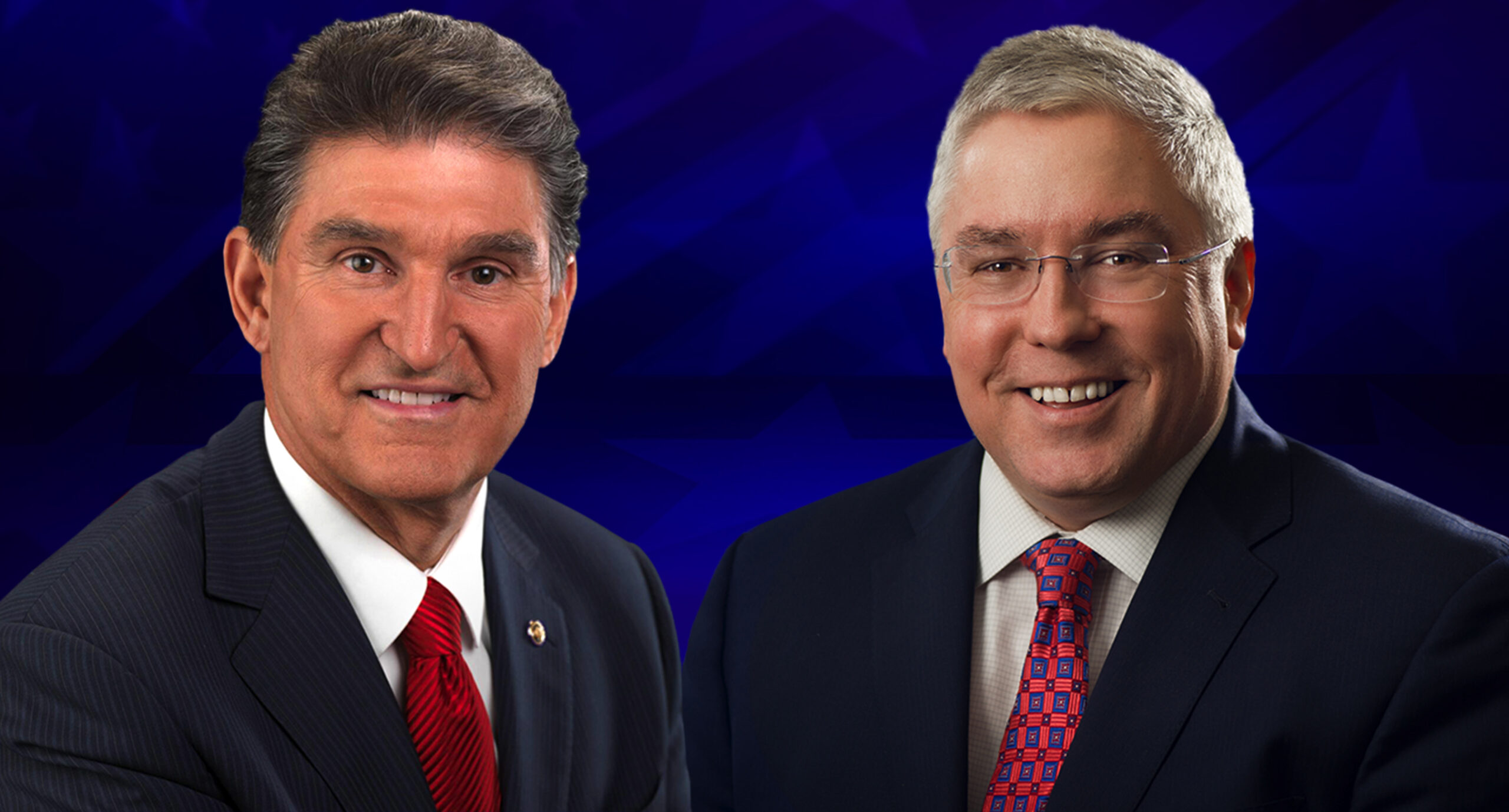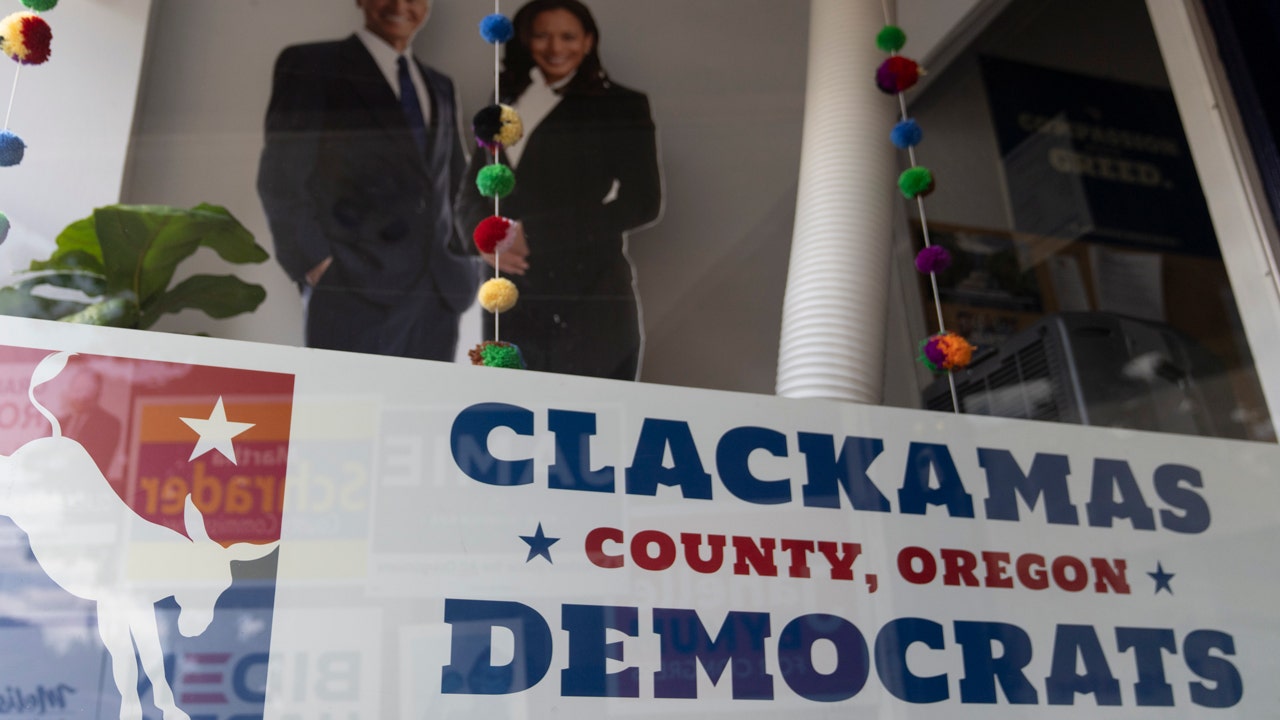World
White House hoping Biden-Xi meeting brings progress on military communications, fentanyl fight

WASHINGTON (AP) — U.S. officials expressed hope Monday that this week’s highly anticipated face-to-face meeting between President Joe Biden and Chinese President Xi Jinping will produce some concrete results, including the possible reestablishment of military communication between the two nations and a shared effort to combat illicit fentanyl trafficking.
The two leaders will meet Wednesday on the sidelines of the Asia-Pacific Economic Cooperation summit in San Francisco. The Biden-Xi bilateral will be the marquee moment of the forum, which is dedicated to promoting trade, investment and economic development among nations around the Pacific Ocean.
Biden and Xi have not spoken in a year. Their last meeting was at the Group of 20 summit in Indonesia last fall. And since then, tensions between the two nations have grown following a series of events touched off by the shooting down of a Chinese spy balloon that had wafted across the U.S. earlier this year.
The frosty relationship between the two economic superpowers has global implications: China and the U.S. produce roughly 40% of the world’s goods and services.
U.S. officials have set relatively low expectations for the Biden-Xi meeting, suggesting that simply getting back to a baseline of routine communication would be a good benchmark for success. Still, White House national security adviser Jake Sullivan said Monday there could be some movement toward shared goals, through “intense diplomacy.”
“All in all we’re looking forward to a productive meeting,” Sullivan said. “President Biden has a long history with President Xi and their conversations are direct, they’re straightforward and President Biden believes there is no substitute for leader-to-leader, face-to-face diplomacy to manage this complex relationship.”
Among those goals: the reestablishment of communications between military leaders of the two nations. U.S. military contacts with China have eroded, particularly since the pandemic, and are now almost nonexistent, even as the number of unsafe or unprofessional incidents between the two nations’ ships and aircraft have spiked.
The U.S. has consistently viewed military relations with China as critical to avoiding any missteps and to maintaining a peaceful Indo-Pacific region. They became even more important as China stepped up its efforts to aggressively militarize manmade islands in the Pacific as part of a broader campaign to control the South China Sea, including international transit by other ships and aircraft.
China has also long complained about U.S. Navy and Air Force movements in the western Pacific, along with other U.S. moves to impose sanctions and other economic restrictions. Canceling military talks is viewed by China as a way to punish Washington.
But there are small signs of progress. China’s defense ministry last week said the two militaries held a conference call on the search for the remains of American prisoners of war and missing personnel, discussing case investigations and cooperation on military archives.
Sullivan also said there were other areas where U.S. and Chinese interests overlap, particularly on the effort to combat fentanyl trafficking.
The powerful opioid is the deadliest drug in the U.S. today. The Centers for Disease Control and Prevention states that drug overdose deaths have increased more than sevenfold from 2015 to 2021.
Mexico and China are the primary sources for fentanyl and fentanyl-related substances trafficked directly into the U.S., according to the Drug Enforcement Administration, which is tasked with combating illicit drug trafficking. Nearly all the chemicals needed to make fentanyl come from China, and the drugs are then mass-produced in Mexico and trafficked via cartels into the U.S.
Sullivan said Biden would also use the meeting to address China’s relations with Iran and Taiwan.
China has perceived American contact with Taiwan as encouragement to make the island’s decades-old de facto independence permanent. Concern about the issue is heightened as Taiwan prepares to hold presidential elections in January. Under the “One China” policy, the U.S. recognizes Beijing as the government of China and doesn’t have diplomatic relations with Taiwan, but it has maintained that Taipei is an important partner in the Indo-Pacific.
Sullivan said Biden would “set out a vision for peace and stability and the maintenance of peace and stability across the Taiwan Strait.”
The Democratic president is also expected to let Xi know that he would like China to use its burgeoning sway over Iran to make clear that Tehran or its proxies should not take action that could lead to expansion of the Israel-Hamas war. The Biden administration sees the Chinese, a big buyer of Iranian oil, as having considerable leverage with Iran, which is a major backer of Hamas.
“President Biden will make the point to President Xi that Iran acting in an escalatory, destabilizing way that undermines stability across the broader Middle East is not in the interests” of China or “any other responsible country,” Sullivan said.
The White House announced Monday that Biden would also meet with Mexican President Andrés Manuel López Obrador later this week. The two leaders will discuss the growing migration issue at the U.S.-Mexico border and beyond.
Preparations for the summit are evident around San Francisco.
The city has erected tall steel barricades downtown that snake around the streets surrounding the Moscone Center and other venues where APEC events will be held this week. Finance and diplomatic leaders from the 21 APEC economies are also gathering this week; Treasury Secretary Janet Yellen opened the finance ministers meeting Monday.
The San Francisco Police Department has beefed up patrols throughout downtown. In the area around Union Square, where many summit dignitaries have booked up the city’s four-star hotels, locals have taken note that the city’s significant homeless population seems less prevalent than usual.
___
Madhani reported from San Francisco. Associated Press Writers Janie Har in San Francisco and Lolita C. Baldor and Didi Tang in Washington contributed to this report.

World
The Apartment to Produce ‘Rosebushpruning,’ Starring Kristen Stewart, Josh O’Connor and Elle Fanning

Fremantle’s The Apartment will partner with The Match Factory, Mubi, Kavac Film and Rai Cinema to produce Karim Aïnouz’s next feature film “Rosebushpruning.”
Directed by Aïnouz, the film’s lead cast includes Kristen Stewart (“Love Lies Bleeding,” “Spencer”), Josh O’Connor (“Challengers,” “God’s Own Country”) and Elle Fanning (“Teen Spirit,” “The Great”). Aïnouz is directing from a script written by Efthimis Filippou (Kinds of Kindness, Dogtooth, The Lobster), which is an adaptation from Marco Bellocchio’s debut feature Fists in the Pocket.
Viola Fügen and Michael Weber are producing “Rosebushpruning” for The Match Factory, who are also handling worldwide sales for the film. The adaptation rights have been acquired from Kavac Film also attached at the production team with Simone Gattoni. The Apartment, a Fremantle Company, is co-producing, with Annamaria Morelli as executive producer. Rachel Dargavel for Crybaby Films is co-producing in the UK. Mubi is financing production alongside Catherine Boily and Mitch Oliver’s Metafilms and Anna Films in association with Fremantle. Film und Medienstiftung NRW, Medienboard and the German Federal Film Board also funded the film.
“We are extremely happy to be part of this important film together with exceptional partners such as The Match Factory, MUBI, Kavac and Rai Cinema,” said Annamaria Morelli, CEO, The Apartment. “We deeply appreciate Karim Aïnouz’s films and are enthusiastic of the way he and Efthymis Filippou adapted Bellocchio’s masterpiece, revisited with a strikingly bold and original vision.”
Commenting on “Rosebushpruning,” Aïnouz said: “Marco Bellocchio’s astonishing debut, ‘Fists in the Pocket,’ was released over 50 years ago and had a huge impact on Italian cinema and storytelling at the time. I’m excited to be collaborating with Efthimis Filippou to revisit this iconic work to create a contemporary parable about the explosion of the traditional patriarchal family — which I hope will be touching and provocative in equal measure. It’s a dream come true to be working with such a dynamic ensemble of actors that I have long admired to bring this explosive adaptation to audiences today.”
The film will begin production later this year.
Aïnouz is represented by Lark Management, CAA and Andre des Rochers.
World
Thailand's new Senate selection process unfolds as candidates begin 'complicated' registration

- Thailand has started the selection of new senators, marking the start of a contentious battle between progressives and conservatives.
- Hopeful candidates registered at district offices nationwide, competing for one of the 200 seats in the upper house of Parliament.
- The Senate, though less powerful than the House of Representatives, played a large role in blocking the formation of a new government.
Thailand on Monday officially began the selection of new senators, a process that has become part of an ongoing war between progressive forces hoping for democratic political reforms and conservatives seeking to keep the status quo.
Hopeful candidates headed to district offices across the country on the first day of registration to compete for one of the 200 seats in Parliament’s upper house.
The power of the Senate — although limited compared to the House of Representatives, which is tasked with law-making responsibilities — was demonstrated dramatically when it blocked the progressive party that won the most seats in last year’s election from forming a new government.
HUMAN RIGHTS GROUP URGES THAI GOVERNMENT TO HALT FORCED REPATRIATION OF POLITICAL DISSIDENTS
The senators were able to do so because of the 2017 Constitution, passed under a military government, which requires the prime minister to be approved by a joint vote of the elected House and the Senate, which was appointed by the military regime.
Potential candidates to become members of Thailand’s next Senate arrive at the Phaya Thai district office in Bangkok on May 20, 2024. Thailand on Monday officially began the selection of new senators, a process that has become part of an ongoing war between progressive forces hoping for democratic political reforms and conservatives seeking to keep the status quo. (AP Photo/Sakchai Lalit)
The Move Forward Party was opposed by senators who disapproved of its vow to seek reforms of Thailand’s monarchy.
The process of selecting the new senators will include three rounds of voting: district, provincial and national.
Unlike the elected lower house legislators, the senators will be chosen by their fellow applicants, competing in 20 categories such as occupation or social position, including women, the elderly and the disabled.
THAI PRO-CANNABIS ADVOCATES RALLY AS GOVERNMENT MOVES TO RECRIMINALIZE
The final results are expected to be announced in July.
The selection process in the Constitution is so complicated and unclear that critics say it was deliberately designed to discourage public participation. Critics say the Constitution also allows the state bureaucracy to hold more power than directly elected political officeholders.
The new senators will no longer be able to take part in selecting a prime minister but will retain the power to approve legislation passed by the House.
They also have the power to select members of nominally independent regulatory bodies such as the Election Commission and the Constitutional Court, whose work has been widely seen as impeding efforts at political reform and crippling proponents with legal penalties, including prison.
The Senate’s votes are also required to amend the Constitution. The governing Pheu Thai party is pushing for a new charter to replace the 2017 one to facilitate certain reform efforts promised during the campaign.
Civil society groups have campaigned to raise public awareness and encourage those favoring democratic reforms to enter the Senate selection process.
Law reform advocate Yingcheep Atchanont of the group iLaw has been organizing public discussions on the importance of the Senate and workshops to help would-be applicants understand how the selection process works.
“We are telling people what to do if they want change. There have been calls in recent years to reduce the power of the Senate, to get rid of the Senate,” he said. “All of this can only happen if we can amend the Constitution, and we need enough votes from the senators for that.”
Candidates must be more than 40 years old and have more than 10 years of experience in their chosen occupational group, the latter provision not applying for those competing in one of the social identity groups. They also cannot campaign or do anything that can be interpreted as campaigning.
Even the Election Commission has acknowledged how complicated the process is but says it will be able to carry it out smoothly and transparently.
Purawich Watanasukh, a political science lecturer at Bangkok’s Thammasat University, said he thinks the complicated rules were intentionally designed to reduce public participation.
“This is the contest of the people to debug not just the Senate itself, but the Constitution, which would lead to a new political landscape in Thailand,” he said, “”It will be the next battleground between the progressive movement and the establishment.”
World
Panic in Bishkek: Why were Pakistani students attacked in Kyrgyzstan?

Islamabad, Pakistan — More than 300 Pakistani students have rushed home from Kyrgyzstan after a mob attacked hostels occupied by international students, injuring several of them, in the Central Asian nation’s capital Bishkek last week.
The violence broke out in the late hours of May 17, lasting for more than six hours, when hundreds of Kyrgyz people targeted hostels of international students, leaving more than 30 injured.
In a news conference on Sunday, Pakistan’s Foreign Minister Ishaq Dar said Kyrgyz authorities had assured that the situation had been brought under control. He confirmed that “four or five” Pakistani students were injured in the violence but refuted online rumours of any deaths in the clashes.
Yet, Dar appeared to acknowledge the fears of the more than 11,000 Pakistani students in Kyrgyzstan, and their families, announcing that the government was arranging flights to bring back all students who wanted to return. The government, he said, would bear the expenses — though Pakistani students in Bishkek claimed they had to pay out of pocket for tickets back.
So what led to the violence, what happened on May 17, and what is the situation in Bishkek now?
What happened on the night of May 17?
Korish Malik, a 24-year-old Pakistani student pursuing a medical degree in Bishkek, recalled that he was in his hostel when, in the evening, student residents received a message from the hostel administration to stay indoors.
“The administration said there appears to be a threat to international students and they must refrain from leaving the premises of their hostels. But then we saw on TikTok that a large group of locals was gathering and marching towards our hostel,” he told Al Jazeera from Bishkek.
According to Kyrgyz media reports, a crowd of more than 700 people gathered outside the city’s VIP Hostel, which houses more than 800 international students, including Pakistanis, Indians, Egyptians and Bangladeshis.
Bilal Ishaq, a Pakistani medical student from Faisalabad who lives in a private apartment near the VIP Hostel, said he also received alerts on WhatsApp groups of fellow university students and the Pakistani student community, asking students to stay indoors. He saw a crowd chanting slogans pass his building, moving towards the hostel. The WhatsApp groups, he said, were buzzing with messages from terrified students.
Back at the VIP Hostel, Korish said, soon after students received the warning, police officials arrived and cordoned off the front gate of the building. But the crowd, he said, was large — too large, it turned out.
“While there were a lot of police officials there, they did not have any riot gear with them,” he said. “We were just asked to switch off lights, lock the doors, and put heavy objects in front of the doors of our room.”
Korish said the mob entered the hostel from the emergency exit at the back of the building and went on to indulge in vandalism.
Videos on social media show a huge number of people walking towards the hostel, hurling stones at the windows. Another video shows a door being broken, and glass shattered in the corridor of the hostel.
Korish said he and his three roommates hid in their room on the fourth floor of the five-storey building. They could hear loud noises from other floors, he said.
“The whole thing lasted for almost six to eight hours and when we eventually came out of the room, it was obvious that the mob was there to just cause chaos and spread terror,” Korish said.
What triggered the attack?
The May 17 violence followed a brawl between Kyrgyz locals and a group of international students four days earlier.
Hassan Aryani, a Pakistani student pursuing his degree in medicine, said the videos of the fight went viral among students in the city. Aryani, from Mardan in the province of Khyber Pakhtunkhwa, said an “uneasy calm” hung over the student community in Bishkek after that clash.
On the night of May 17, that tension exploded in mob violence.
What were the international responses?
The embassies of India and Pakistan in Bishkek advised the students to stay indoors.
On the morning of May 18, Pakistan’s Prime Minister Shehbaz Sharif posted on X that he was “deeply concerned over the situation of Pakistani students in Bishkek”.
Deeply concerned over the situation of Pakistani students in Bishkek, Kyrgyzstan. I have directed Pakistan’s Ambassador to provide all necessary help and assistance. My office is also in touch with the Embassy and constantly monitoring the situation.
— Shehbaz Sharif (@CMShehbaz) May 18, 2024
Indian Foreign Minister S Jaishankar also wrote on the social media platform that he was monitoring events in Bishkek, urging Indian students to stay in contact with the country’s embassy.
The Kyrgyz government said on the morning of May 18 that calm had returned to the capital.
![Pakistanis protest against the attacks on international students, including Pakistanis, in Kyrgyz capital of Bishkek last week. [Sohail Shahzad/EPA]](https://www.aljazeera.com/wp-content/uploads/2024/05/sohail-shahzad-1716194557.jpg?w=770&resize=770%2C505)
How is the situation in Bishkek now?
Aryani, who is in his final year of college, said while Bishkek appears to be returning to a state of normalcy, he was not willing to stick around in the Kyrgyz capital at the moment.
He said he planned to get a ticket and fly back to Pakistan as soon as he could.
Korish, the third-year student, said he managed to step out of his hostel on Monday morning and could move around the city. But he also said he would travel back to Pakistan to allay his parents’ concerns.
Meanwhile, Kyrgyz authorities also do not want to take chances.
Rasul Abazbek uulu, the country’s deputy minister for education and science, announced in a news conference on Monday that foreign students had been allowed to attend classes online for a week.
The latest announcement helped students like Korish make up their minds about the decision to return home.
“My family is naturally very worried about the situation. But now since our college has said that classes will take place online, and the semester was to end anyway at the end of May, I have bought a ticket to go back tomorrow,” Korish said.
While the Pakistani embassy in Kyrgyzstan says it is in close contact with the local authorities to facilitate the students, several students in Bishkek accused the government of abandoning them. Though Dar, Pakistan’s foreign minister, has said the government would bear the cost of transporting students back, the three students Al Jazeera spoke to all said they had to pay themselves for their tickets. It is unclear if the government plans to subsequently reimburse students.
The Kyrgyz government said those involved in the violence had been arrested and it was in touch with different foreign governments whose nationals were affected by the incident.
“There are no seriously injured people among participants of the incident. The Ministry of Foreign Affairs of the Kyrgyz Republic did not receive any messages regarding injured foreign citizens. At the same time, the ministry urges representatives of the media and foreign diplomatic missions not to disseminate false and unverified information,” the Kyrgyz government said in a statement on May 18.
How many Pakistanis and Indians study in Kyrgyzstan and where?
More than 11,000 Pakistani students and 15,000 Indian students are pursuing degrees in medicine in Kyrgyzstan.
The attraction: a combination of reasonably high standards at Soviet-era medical colleges combined with tuition fees that are lower than most educational destinations in the West and even in their home countries. Kyrgyzstan medical colleges are also popular among students from several Arab and African nations.
![Kyrgyz media reports that more than 700 people were part of the mob that attacked international students in Bishkek. [Courtesy Korish Malik]](https://www.aljazeera.com/wp-content/uploads/2024/05/Courtesy-Korish-Malik-1716194805.jpeg?w=770&resize=770%2C1027)
Ishaq, the student from Faisalabad, said while his medical degree in Pakistan could cost him nearly eight to nine million rupees ($28,000 to $32,000), the corresponding amount in Kyrgyzstan was closer to four to five million rupees ($14,000 to $18,000).
“It was a lot more feasible to study here money-wise. But now, with the Pakistani currency devaluation, the cost for studies even here is increasing,” he added. The Pakistani rupee, which stood at 160 against the US dollar in December 2020, has since slipped by more than 70 percent to 278 rupees a dollar.
-

 News1 week ago
News1 week agoSkeletal remains found almost 40 years ago identified as woman who disappeared in 1968
-

 World1 week ago
World1 week agoIndia Lok Sabha election 2024 Phase 4: Who votes and what’s at stake?
-

 Politics1 week ago
Politics1 week agoTales from the trail: The blue states Trump eyes to turn red in November
-

 Movie Reviews1 week ago
Movie Reviews1 week ago“Kingdom of the Planet of the Apes”: Disney's New Kingdom is Far From Magical (Movie Review)
-

 World1 week ago
World1 week agoBorrell: Spain, Ireland and others could recognise Palestine on 21 May
-

 World1 week ago
World1 week agoUkraine’s military chief admits ‘difficult situation’ in Kharkiv region
-

 World1 week ago
World1 week agoCatalans vote in crucial regional election for the separatist movement
-

 Politics1 week ago
Politics1 week agoNorth Dakota gov, former presidential candidate Doug Burgum front and center at Trump New Jersey rally

















